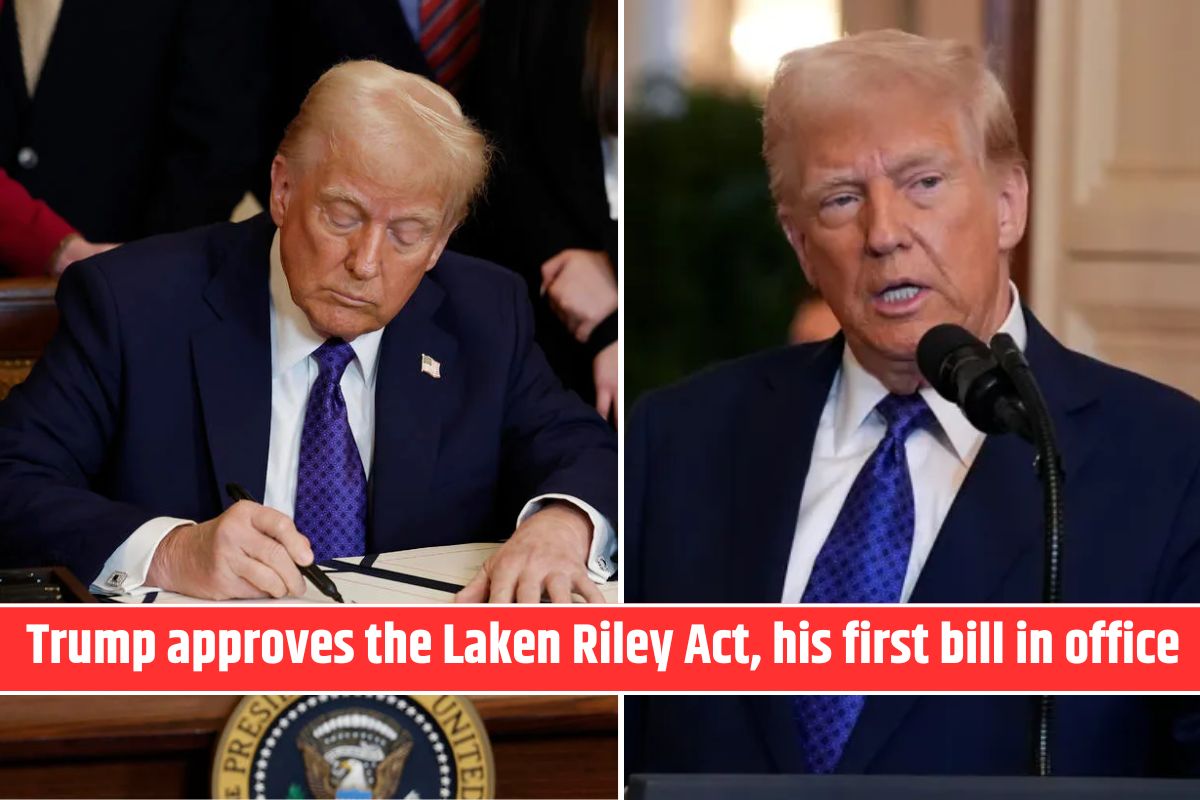President Donald Trump has signed the Laken Riley Act, marking the first piece of legislation enacted during his new term. The law significantly expands the federal government’s power to detain undocumented immigrants, particularly those involved in crimes such as burglary, theft, and shoplifting.
Named after a 22-year-old nursing student murdered by an undocumented Venezuelan immigrant, the act has gained bipartisan support but also sparked debate over its enforcement and funding.
What Is the Laken Riley Act?
The Laken Riley Act broadens the scope of mandatory detention for noncitizens who:
- Have been convicted of or charged with burglary, larceny, theft, or shoplifting.
- Admit to committing these crimes.
- Are involved in crimes leading to serious injury or death.
- Assault law enforcement officers.
Additionally, the act empowers state attorneys general to sue the federal government if they believe immigration policies have harmed their states or residents.
Bipartisan Support Despite Democratic Concerns
The House approved the legislation last week before it moved to the Senate, where it was expanded to cover crimes causing serious bodily harm. Despite resistance from some Democrats, the bill passed with bipartisan support, reflecting the growing political urgency around immigration control.
While some Democrats initially blocked the measure in the previous Congress, election losses in 2024 and increased public concern over border security have made them more open to immigration-related reforms. However, questions remain about whether Immigration and Customs Enforcement (ICE) has the necessary funding to enforce the law effectively.
Trump’s Immigration Crackdown Continues
The Laken Riley Act is part of a broader series of aggressive immigration policies enacted by the Trump administration, including:
- Ending birthright citizenship for children of undocumented immigrants.
- Increasing military involvement in border enforcement.
- Labeling cartels and gangs as terrorist organizations.
- Restricting asylum and refugee admissions.
These policies indicate a significant shift toward stricter immigration control, reinforcing Trump’s campaign promises to curb illegal immigration.
Congress Works on Additional Immigration Measures
While Trump pushes executive actions on immigration, Congress is working on a large-scale reconciliation package aimed at securing the southern border. The package could include additional funding for border enforcement, energy policies, and tax reforms, aligning with Republican priorities.
The Laken Riley Act represents a major shift in U.S. immigration policy, expanding the detention of noncitizens involved in criminal activities. While it has gained bipartisan support, questions remain about its implementation and funding. As Trump moves forward with a series of executive actions to tighten border security, the debate over immigration is expected to remain a central issue in American politics.
